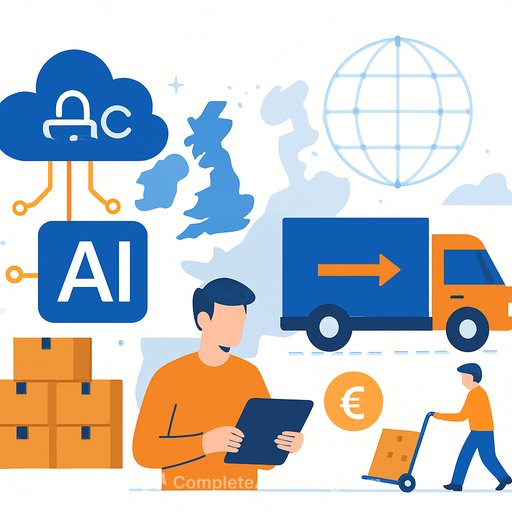Enabling Self-Service Data for AI: Insights from Promethium CEO Prat Moghe
Self-service analytics promised to democratize data access across enterprises, yet many organizations face frustration: users wait days or weeks for answers, while data teams are overwhelmed with ad hoc requests. Despite investments in modern BI platforms, semantic layers, and data catalogs, the core issue lies not in technology but in workflow design.
Prat Moghe, CEO of Promethium, explains that current self-service models expect business users to adapt to data systems rather than adapting systems to how decisions are made. Often, by the time data arrives, decisions are already made on instinct, not insights.
Here, we explore his perspective on a new approach built on intelligent orchestration and agentic workflows, enabling governed, contextual insights in minutes without overhauling existing infrastructure.
What’s Really Broken in Self-Service Data?
The problem isn’t technology — it’s how workflows are designed. Typically, a business leader requests data for decisions, but existing dashboards lack relevant insights. After submitting requests to data teams, they receive complex datasets with unclear labels and no documentation. Several iterations later, usable insights emerge — but the moment to act has passed.
Surveys show that over half of data professionals take more than a week to fulfill ad hoc requests, often requiring multiple revisions. The bottleneck is the disconnect between how people ask questions and how systems deliver answers.
Traditional self-service tools offer pre-curated dashboards and datasets, which fall short when exploring new questions. What’s needed is the ability to get complete, contextual answers on demand, which means rethinking the entire question-to-decision workflow.
Why Don’t Semantic Layers and BI Tools Solve This?
Semantic layers, data catalogs, and BI platforms tackle important pieces but don’t integrate smoothly when new questions arise.
For example, answering "Which enterprise customers are likely to churn in Q4 and why?" requires data from multiple sources: Salesforce, product analytics, support tickets, ERP contracts. The challenge is not just data access but combining fragmented business definitions and metadata scattered across tools and tribal knowledge.
Semantic layers define terms like “customer_tier,” but can't automatically apply complex business rules such as excluding customers in early contract stages. What’s missing is intelligent orchestration — systems that understand intent, gather relevant data from multiple sources, apply business logic automatically, and deliver actionable results.
How Does Promethium’s Approach Differ?
Traditional platforms expect users to navigate dashboards or predefined datasets, and when questions don’t fit, the data team manually builds answers. Promethium reverses this by enabling analysts to deliver Instant Data Answers that are governed, complete, and explainable in minutes.
Here’s the process:
- A business stakeholder asks a question.
- An analyst inputs the question into Promethium’s Mantra™ Data Answer Agent.
- The agent interprets intent, identifies relevant data sources, applies governance and business logic, and generates a full answer including data, SQL, definitions, and lineage.
- The analyst reviews and validates the result, then shares it via BI tools like Tableau or Power BI, data warehouses like Snowflake, or workflow systems.
This approach empowers analysts to work at business speed without waiting for engineering. It complements the data team’s role, enhancing control and scalability in self-service.
How Is Trust and Governance Maintained in AI-Generated Insights?
Trust requires explainability, validation, and continuous improvement. Promethium’s 360° Context Engine integrates business definitions, technical metadata, lineage, and usage history to provide full transparency.
Every data answer includes:
- Generated SQL queries
- Applied business rules
- Data sources accessed
- Assumptions made
Data teams review and approve logic before reuse. Human oversight remains central — analysts refine queries and business logic, and this feedback trains the system for future accuracy. The result is AI that amplifies human expertise without sacrificing control or accountability.
Can This Work with Complex, Distributed Data Architectures?
Promethium’s platform connects to data where it resides, without requiring migration or replication. It creates a virtual layer querying Snowflake, Databricks, cloud warehouses, and SaaS apps simultaneously, applying governance consistently.
Implementation follows a phased approach:
- Start by connecting primary data warehouses and defining business logic for common questions.
- As trust builds, expand to more data sources and use cases.
This delivers immediate value without infrastructure risk. Existing security and governance policies remain intact. Results can be consumed directly, embedded in BI tools, or integrated into workflow systems, preserving prior investments while boosting capability.
How Will the Data Team and Business User Relationship Evolve?
Data teams are shifting from service providers to strategic enablers. Instead of handling one-off requests, they focus on defining business logic, governance, and raising data literacy.
Early adopters are implementing agent-to-agent workflows where business applications request Data Answers automatically from Mantra™, reducing manual intervention. This doesn’t eliminate human judgment — it multiplies the impact of data professionals by automating routine queries.
In the next few years, routine analysis will be largely automated. Data teams will concentrate on complex investigations and ensuring AI aligns with business goals. The key skill will be translating business strategy into data strategy.
Ultimately, the goal is to amplify human expertise so every decision is data-informed without overwhelming experts. Platforms like Promethium enable scalable self-service by transforming how questions become answers.
For managers looking to strengthen their team’s data capabilities and adopt practical AI-driven analytics, exploring such agentic platforms can be a strategic step forward.
Your membership also unlocks:






